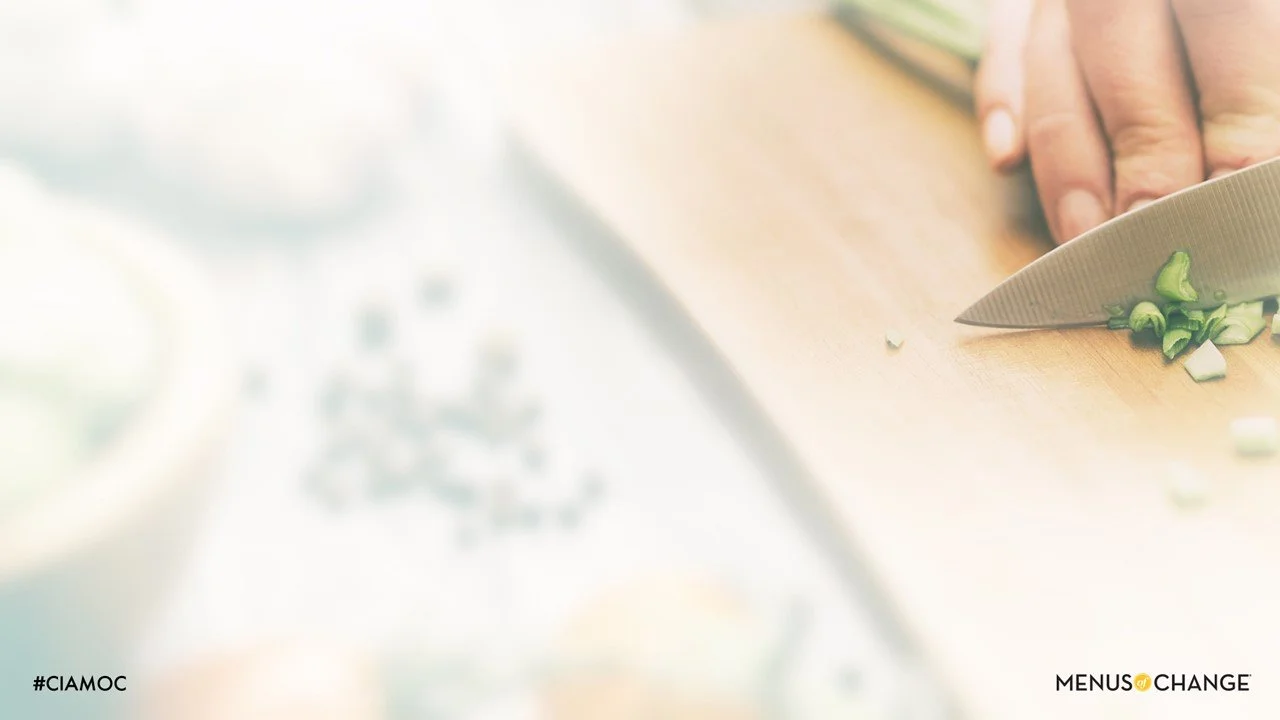The newly released 2025 EAT-Lancet Commission Report was created to answer some of the most critical questions of our time: Based on the best available scientific evidence, what global dietary guidance optimizes personal health and secures planetary health looking ahead to 2050 when the world population is projected to be nearly 10 billion? And further, how does this recommended dietary guidance come to life in diverse countries and food cultures? And can this diet be affordable, accessible and socially just?
Which immediately leads to these questions: What’s for dinner? And more to the point: Will these meals and dishes—and recommended dietary patterns—be delicious and have widespread appeal? And finally: Can equitable food system transformation be compatible with craveable flavors and happy eaters?
Inspired by these questions, EAT, the Harvard T.H. Chan School of Public Health—Department of Nutrition, and the Culinary Institute of America have teamed up to create Our Cultures, Our Meals: Cooking for Planetary Health Images and Inspiration from Plant-Forward Kitchens around the World. This new documentary initiative is designed to support and amplify the scientific outcomes of the new 2025 EAT-Lancet Commission on Food, Planet, Health Report with a photographic and editorial translation of what this guidance can look like in practical cooking and family meals in diverse countries around the world.
The first two editions of this initiative, presented here, focus on the traditional dietary patterns of Greece and Vietnam and were photographed on location in those countries. These two countries are examples of the plant-rich traditions of the Mediterranean and Asia. Future editions will highlight other cultures in Latin America, Africa and elsewhere. Enjoy!
The collective impact of many of our current dietary patterns is unsustainable for both personal and planetary health. But there is a tremendous opportunity through cooking, whether with simple home recipes or elevated restaurant dishes, to reverse these impacts. As we look to transform our food system for the future, we will surely require diverse solutions from yet-to-be-developed agricultural techniques to alternative proteins and more. But right now, with no need for further invention, there are thousands of plant-rich meals, recipes and culinary techniques, developed and refined over centuries by home cooks around the world. This delicious heritage is often hiding in plain sight, just waiting to be discovered, tasted, and shared.
The photographs in these first two editions of Our Cultures, Our Meals: Cooking for Planetary Health show a series of representative, culturally rooted meals for family and friends. Taken as a series, these photos demonstrate the importance of the dietary pattern over several days or a week, versus focusing on a single meal. In addition, we have highlighted a range of individual dishes that leverage genius strategies to achieve deliciousness. And finally, we have included photos of some of the most important plant-sourced ingredients in the traditional cuisines of each country.
While the illustrations of the overall traditional dietary patterns of Greece and Vietnam highlighted here are truly plant-rich—and include vegetarian and vegan dishes—they by no means exclude meat or other foods from animal sources, paralleling the guidance of the 2025 EAT-Lancet Commission Report. None of this is about eliminating choice but rather expanding our horizons in food choices and preferences. And when one considers dietary patterns versus single meals, there is still plenty of room in the 2025 EAT-Lancet Planetary Health Diet for all of our favorite foods including celebratory, special occasion foods—at home and in restaurants.
The food cultures of Vietnam and Greece are not immune to the erosion of traditional dietary patterns happening around the world caused by globalization, the decline of home cooking, and such dietary changes as increased consumption of meat and other animal foods, sugary beverages and highly processed foods. But even as traditional, diet-linked personal and public health strengths are increasingly under threat, the possibility of a reversal of these negative trends and the further elevation and/or adaptation of these healthy, world heritage models suggest promising, forward-looking solutions.
Shifting the lens from the impact of meal patterns and food choices to projected future challenges around agricultural production and the health of our rivers, oceans and fisheries, the 2025 EAT-Lancet Commission Report highlights the accelerating pressures on a series of planetary boundaries that define a safe operating space for world food production. From climate change and increased wildfire risk to declining water resources and collapsing biodiversity, these threats are already apparent in food production challenges in Greece, Vietnam and many other traditional food cultures. But here again, the 2025 EAT-Lancet Commission Report and its Planetary Healthy Diet (PHD) give us a road map to both mitigate and reverse these threats. Increasing worldwide preservation and adoption of plant-rich, culturally inspired dietary patterns, menus and food offerings will create a lighter environmental footprint, de-risk the future of global food production, and better ensure the accessibility and affordability of healthy meals for all.
The foods presented in these photos were traditionally made by Greek and Vietnamese home cooks of all socio-economic levels, including the poorest. The Italians have a particularly relevant name for this type of inexpensive, typically plant-centric cooking, cucina povera or poor kitchen.
We want these images and culinary ideas to challenge you to think about how culinary strategy and deliciousness can support personal and planetary health. Yes, we need good policy decisions by political leaders, a redoubling of commitments by the world business community, and robust engagement by civil society. But let’s not underestimate the power of a good meal—inspired and informed by the plant-rich cooking of our collective world cultural heritage, born of necessity and elevated by creativity—to better secure our future.
Project producer and editorial director: Jessie Price, consulting editor and former editor-in-chief, Eating Well magazine
Photography: Penny De Los Santos, visual storyteller who has documented food and culture globally for 20 years.
Made possible by a grant from EAT and The Rockefeller Foundation
© 2025 The Culinary Institute of America. All rights reserved.











